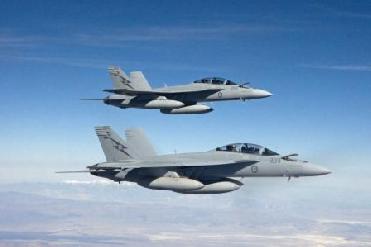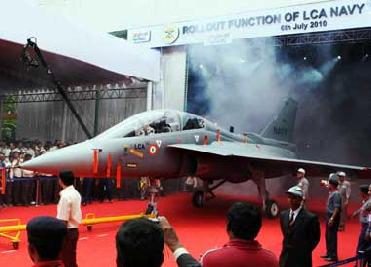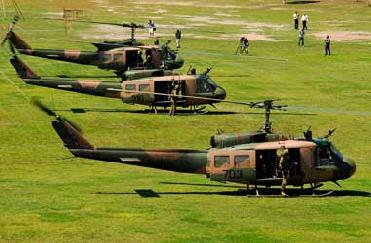
The Australian Super Hornets perfrom a work up flight over the Sierra Nevada Mountain Ranges in California, USA. An Australian MoD photo
SYDNEY (BNS): Australia Tuesday received another six F/A-18F Super Hornets at RAAF Base Amberley in Queensland.
The Super Hornets landed Tuesday after a four-day journey from Naval Air Station Lemoore in California. The fighters also known as 'Rhinos,’ will replace the F-111s which will be retired at the year end.
The Royal Australian Air Force’s new fighters feature stealth characteristics, an enlarged airframe, more powerful engines, greater weapons and fuel payload, advanced avionics and state-of-the-art radar, the Department of Defence said in its website.
The first Super Hornet A44-201 delivered earlier remains in the United States conducting ongoing advanced software development trials with the United States Navy. The aircraft is expected be ferried to Australia before December.
"The Super Hornet acquisition project continues to be a major success. It is delivering a quantum leap in air combat capability to Air Force, on-time and on-budget," Minister for Defence John Faulkner said.
"This project is a great example of what can be achieved through a strong Defence and Industry partnership."
With Tuesday’s arrival Boeing has now delivered twelve Super Hornets to the RAAF. When delivery is completed in 2011, Australia will have a total of 24 F/A-18F Super Hornets ahead of the transition to the F-35 Joint Strike Fighter.
The Super Hornet is a highly capable, battle proven, multi-role aircraft that has already proved its effectiveness in service with the US Navy. Its flexibility will enhance Australia’s air combat capability, through maritime and land strike, suppression of enemy air defence, reconnaissance, air-to-air combat and close air support.
 Previous Article
Previous Article Next Article
Next Article












The Indian Air Force, in its flight trials evaluation report submitted before the Defence Ministry l..
view articleAn insight into the Medium Multi-Role Combat Aircraft competition...
view articleSky enthusiasts can now spot the International Space Station (ISS) commanded by Indian-American astr..
view article